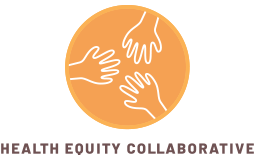07 Jan New HEC Community Member Podcast Highlights Why the 119th Congress Needs to Prioritize 340B and PBM Reforms
Reforming the 340B program and addressing the role of pharmacy benefit managers (PBMs) is crucial. The 340B program aims to stretch scarce federal resources by providing discounts on medications to safety-net hospitals and clinics serving underserved communities. However, the current system allows for significant profit-making by some hospitals and PBMs, potentially diverting funds away from patient care. This can exacerbate health disparities by limiting access to affordable medications for vulnerable populations, hindering preventative care, and undermining the ability of safety-net providers to address the complex social determinants of health that contribute to health inequities.
To kickstart 2025, the National Consumer League (NCL), a member of the Health Equity Collaborative’s community, has released a new podcast reviewing current challenges and outlining solutions the 119th Congress can pursue in the year ahead.
For more information, see NCL’s announcement about the podcast and accompanying resources below.
##
The National Consumer League (NCL) has released a new episode of its We Can Do This podcast, shedding light on the inequities and lack of transparency surrounding the 340B Drug Pricing Program. This federal initiative was designed to provide medications at reduced prices to low-income patients, but it has been manipulated by large healthcare entities to generate billions in profits with minimal oversight. As a result, the program’s intended beneficiaries—low-income patients—are often forced to pay full price for medications they cannot afford.
In this episode, NCL’s CEO Sally Greenberg is joined by Amy Hinojosa, President and CEO of MANA, a National Latina Organization, and founding member of the Health Equity Collaborative, and Dr. Ge Bai, an expert on healthcare accounting, finance, and policy at Johns Hopkins University about the shocking lack of transparency around a program that has more than doubled in cost to taxpayers reaching more than $120 Billion in 2022. Both experts emphasize the importance of accountability to ensure that the 340B program truly benefits those it was designed to serve.
“The 340B program was created as a ‘buy-low-sell-low’ initiative. But over the years, it has evolved into a ‘buy-low-sell-high’ program,” said Dr. Ge Bai. “Hospitals can still buy drugs at a low price, but when they sell those drugs, they do so at full price—without any discount. This allows hospitals to reap substantial profits from the difference between the discounted purchase price and the high selling price.”
The episode also discusses the bipartisan 340B ACCESS Act (HR 8574), proposed legislation aimed at restoring transparency and accountability to this critical healthcare program.
The 340B Access Act (HR 8574) seeks to:
- Ensure that discounts directly reduce patient costs
- Modernize contract pharmacy arrangements
- Strengthen eligibility requirements
- Implement public reporting measures
- Prevent abuse by middlemen
“Entering this new legislative session, there is a real opportunity to leverage bipartisan support and push the 340B ACCESS Act across the finish line,” said NCL CEO Sally Greenberg. “The bottom line is that this program needs stronger guardrails to ensure that everyday Americans—especially those in underserved communities—have access to affordable medications.”
Additional Resources:
- National Consumers League: Medical Debt Issue Brief
- Health Equity Collaborative: The State of U.S. Charity Care: Solutions to Improve the Patient Experiences and Achieve More Equitable Health Outcomes
- Dr. Ge Bai, PhD, CPA, Johns Hopkins University: Estimation of Tax Benefit of US Nonprofit Hospitals
- Dr. Ge Bai, PhD, CPA, Johns Hopkins University: Do Nonprofit Hospitals Deserve Their Tax Exemption?


